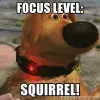Talk less and listen more.
Realize that there is always someone that knows more than you do about any subject. Be humble knowing that you can always learn more.
A quote from Epictetus comes to mind.
“The gods gave us two ears and one mouth so we may listen twice as often as we speak.”
i try to remember something Picard once said to Data about limiting one’s answers to information that’s pertinent and contextually-relevant to a situation. people don’t want a lecture when a quick answer will do.
i have observed that, typically, when someone asks me a question, it’s because they’re trying to solve a problem, not to learn something new. The best course of action, then, is to help them solve their problem by giving them an expedient and relevant answer rather than to attempt to educate them on a new subject. they often have neither the interest nor the time.
Now that I think about it, was Data autistic?
well, i don’t know about that, but it would certainly be accurate to describe him as neuroatypical.
although… now you have me wondering if I’m on the spectrum.
I’m not sure whether or not the android Data could be considered autistic from an in-universe perspective, but I would say that as a character Data was inspired by autistic humans and written in a way that neurodivergent viewers would empathize with. At least that’s how he’s always come across to me, as a neurodivergent trekkie.
neurodivergent trekkie
Well that’s redundant…
/s
Yes. So was Spock.
I assume human mental diagnoses wouldn’t “work” on other species
Hah thats season 1! I just watched that episode yesterday or the day before. Picard also told him not to babble which prompted Data later on to catch himself babbling and call himself out
I avoid correcting people over trivial things. If something would make me sound like a teacher or tour guide, I usually just don’t say it.
When I do decide to speak up (mispronunciations are a big thing for me), I either try to emphasize that I’m doing it out of concern (“I don’t want you to sound silly if you say it in front of others”, which is an honest concern) or I try to sound casual and not act like an absolute authority (“Really? I’ve always heard it pronounced like ______”) That last one has the added benefit of covering my butt if I’m wrong.
I once saw some great advice saying we should celebrate when someone mispronounces a word: it means they learned it from reading.
It reminded me of a time when my uncle was barely literate and pronounced the word ‘esoteric’ as ‘ee-SOTTER-ick’. I realised what had happened, but didn’t really know how to correct him, then found a way to say the word myself in the flow of the conversation.
He never mispronounced it again, and there was no uppity nephew embarrassing his uncle. In the years since he’s published a number of books, so couldn’t be happier for him.
I’m happy for him too
Always remembering that the depth and breadth of what I DON’T know is vastly deeper and wider than what I think I know.
Also, the fact that I can’t remember what I had for lunch yesterday. Pretty sure it was tuna salad, but it could have been an apple.
Ask yourself if this person WANTS to hear what they should have done.
Someone may be talking about how they were trying to do something for the first time and the challenges they faced, and when you butt in with “What you should have done is…” You think you’re being helpful since this information will save them a lot of frustration next time, but wait until they are done explaining the situation. They may have already figured out what you were going to say, and don’t need your info, or, maybe they are still stuck and could use that info, but wait for them to let you know if it’s wanted or not.
Empathy.
One of my pet peeves is when I ask a question of someone, and they reinterpret my question (without communicating that reinterpretation), then give me the answer to THEIR question.
I’ll be the first to say that is possible for someone to form their question wrong, but I give them the benefit of the doubt and give them the answer to their question FIRST, and then restate the question I think they want for the answer I think they’re looking for.
Their question: “What time does the plane take off for Chicago?”
My answer: “11AM, but think you’re asking because you want to know when I’m leaving. I decided to drive instead of flying and will be leaving at 9AM.”
I allow for the possibility that their question IS the right question and give them their answer immediately, even though all of the conversation context suggests they’re not interested in the plane departure, but instead my travel plans. Doing this avoids so many annoying conversations of confusion and frustration on both people’s parts.
When asked on an informational topic, I give the one or two sentence answer, then ask “Does that answer your question or would you like more detail?” Lots of times people want just a short answer, but a surprising amount they ask for more detail and I’m happy to give it. Consent is important.
Lastly, I assume I’m missing information and can learn from others. When someone says something that doesn’t match my understanding, I ask them to explain it so I can learn. I’d rather have correct knowledge than be “right”.
Just admit when I don’t know something. Awhile ago someone asked me why birds legs don’t freeze when they’re hopping around in the snow. I could’ve spouted some loose hypotheses, but instead I just acknowledged “I have no clue, would have to ask google.”
With looser, more “the way things are” kinda life principles, it’s helpful to remember that the world is a really big place, and how people act/what they value varies tremendously from place to place. So, “how people are” is actually usually just “how people I’m around are”. This is why people are advised to be careful in choosing who they spend lots of time with.
This is great! I hate when my husband presents his best guess as fact. I don’t care that he’s guessing, just tell me it’s a guess!
If I ask what cleaner to use on marble and he says “use the all purpose cleaner” tell me that’s a guess! Because the all purpose cleaner has citric acid! That’s bad for marble!
I try to check everything, and Google anything I’m unsure of. He just does whatever feels right and then later says, “how was i supposed to know tupperware goes on the top shelf of the dishwasher? I didn’t have one growing up.” If you’ve never used an appliance before, Google it!! I’ve used a dishwasher my whole life, but when I became responsible for the one in our home, I read the manual.
The single biggest thing for me is having a range of knowledgeable and intelligent friends and spending time with them. It very soon puts things in perspective.
deleted by creator
I try to learn something new, but tangentially related. The beginners mindset helps my ego from getting big.
Similarly, I’m just permanently bad at stuff. Not intentionally but for example my dyslexia is a constant reminder of my own limitations.
Sometimes I remind myself silently “just listen”
So, I’ll take this from a slightly different angle than some of the other folks. Let’s say that your conversation partner is verifiably wrong, and you know it. Before chiming in to correct them, ask yourself how much goodness you’re bringing into the world by doing so, and who benefits from your efforts to educate.
If somebody is telling a teenager learning to drive that gas is on the left and brake on the right, they may actually hit something before they learn it. It’s okay to correct that information.
If they just use “poor grammar,” mislabel some technological item they are not attempting to use in a professional capacity, or they’re off by an order of magnitude on some statistic they’re using as trivia to bolster an otherwise reasonable claim, then correcting them doesn’t advance the conversation or meaningfully facilitate communication. It’s just making them look and feel stupid and small to your benefit. While your conscious impulse was probably not cruel, the whole activity is also tied up with ego and impulse control: we all want to look smart and scratch that psychological itch to share what we know. You won’t always be able to resist or agree that something is trivial, but you have to put in the effort.
As a chronic know it all now raising another one, I try to ask myself, “if I weren’t able to speak right now, would I still think it was important to catch up with this person later and educate them?” If the answer is “no,” then there’s no need to step in right then either. I will also say that if you’ve surrounded yourself with people who care about you, they’re going to tolerate a certain amount of it as a harmless foible, and they probably will use you as a resource when they think it’s appropriate. In a way that makes me all the more determined not to abuse the goodwill of my friends and loved ones by being an exhausting pedant.
…except for Anti-Stratfordians. They can fuck right off. I’ve picked that hill to die on and until I do I will leave the bloodied corpses of a million potential friendships in my wake. Fortunately it doesn’t come up often. 🤣
“The price of being right” enters into this as well. It can be very frustrating when you let something go because the minor details do not matter, but being 100% technically correct has hazards of its own in a social narrative.
Well said. If I weren’t an exhausting pedant, I might have been able to replace my whole comment with something that elegant. :-)
Was watching the wire the other day and there is this whole scene where the Judge Phelan is being a pedant just to be a dick to McNulty. In the scene he is explaining the difference between then and than while insulting Jimmy the whole time. Its a really good scene of showing how people use pedantery to show status and shame others.
Now I need to know, what are anti-stratfordians and what’s your beef with the concept?
Aargh. My browser just wiped the long version. SHort version: People who think Shakespeare didn’t write his plays and poems. They’re virtually all classist assholes who think only a noble with an Ox-bridge education could write that well, completely ignoring what made Shakespeare different, the historical context in which he lived, how his reputation evolved over time, and how all of that is more than reasonably well-aligned with what we know about him.
Neat! Sorry about your browser haha
I’m fanatically polite so I am mindful of being humble in my interactions.
If you have the option to choose between phrasing something in the form of a statement and phrasing it in the form of a question, do the latter.
Regularly and intentionally spend time considering the opposite.
This helps you to check your paradigms.
It also helps if you search for content which contradict your current thinking rather than support it, just to get that perspective.
For example, if you’re super organised, a book like A Perfect Mess: The Hidden Benefits Of Disorder may help you to see things in a different light.
I have a pleasant chat with David Dunning and Justin Kruger









